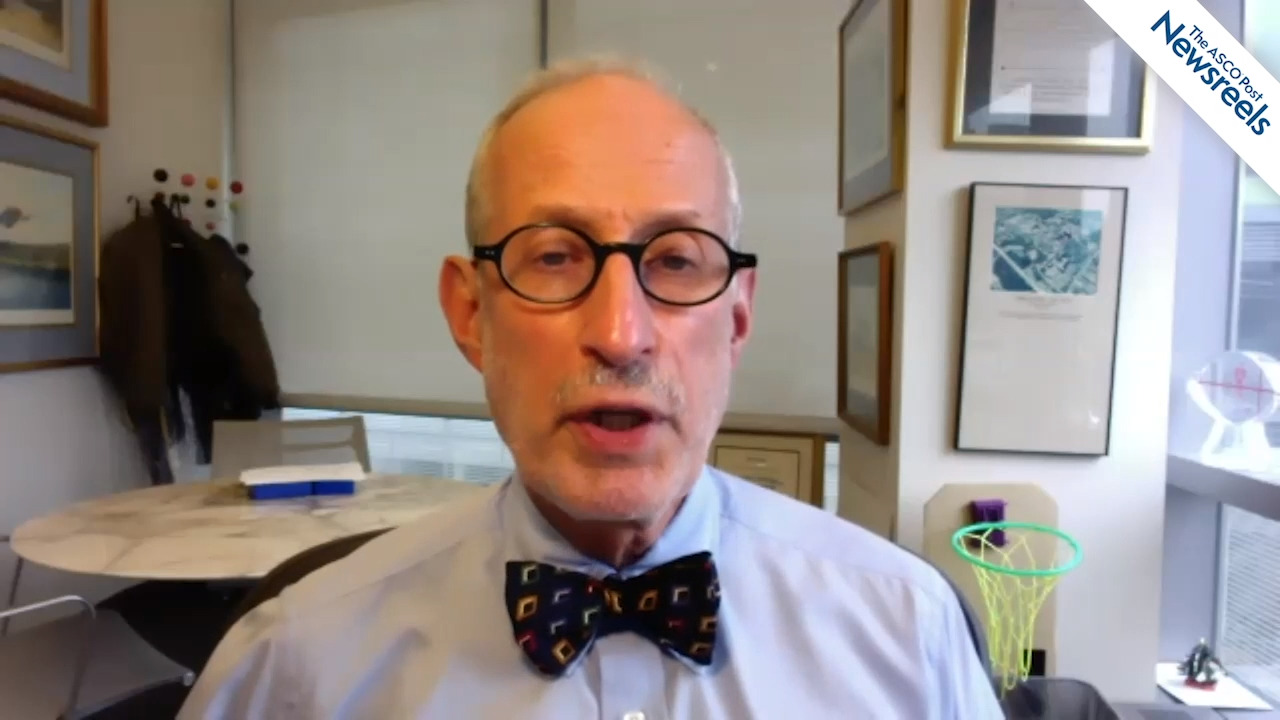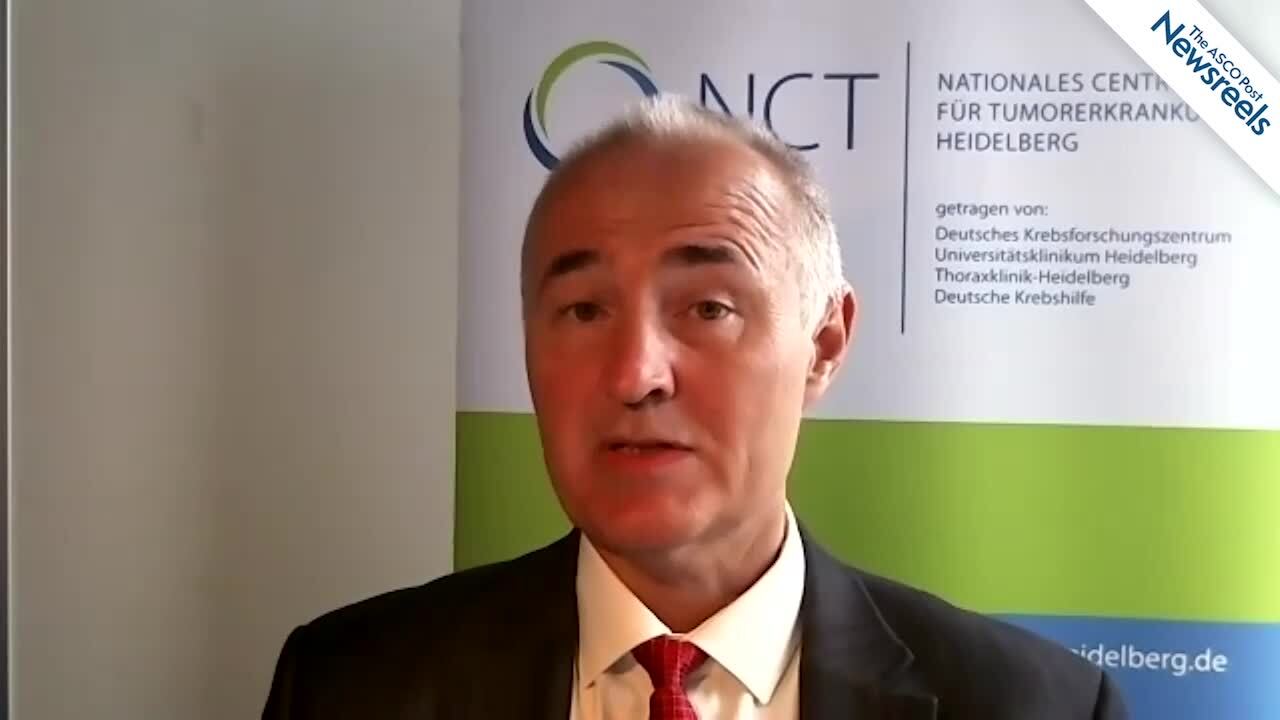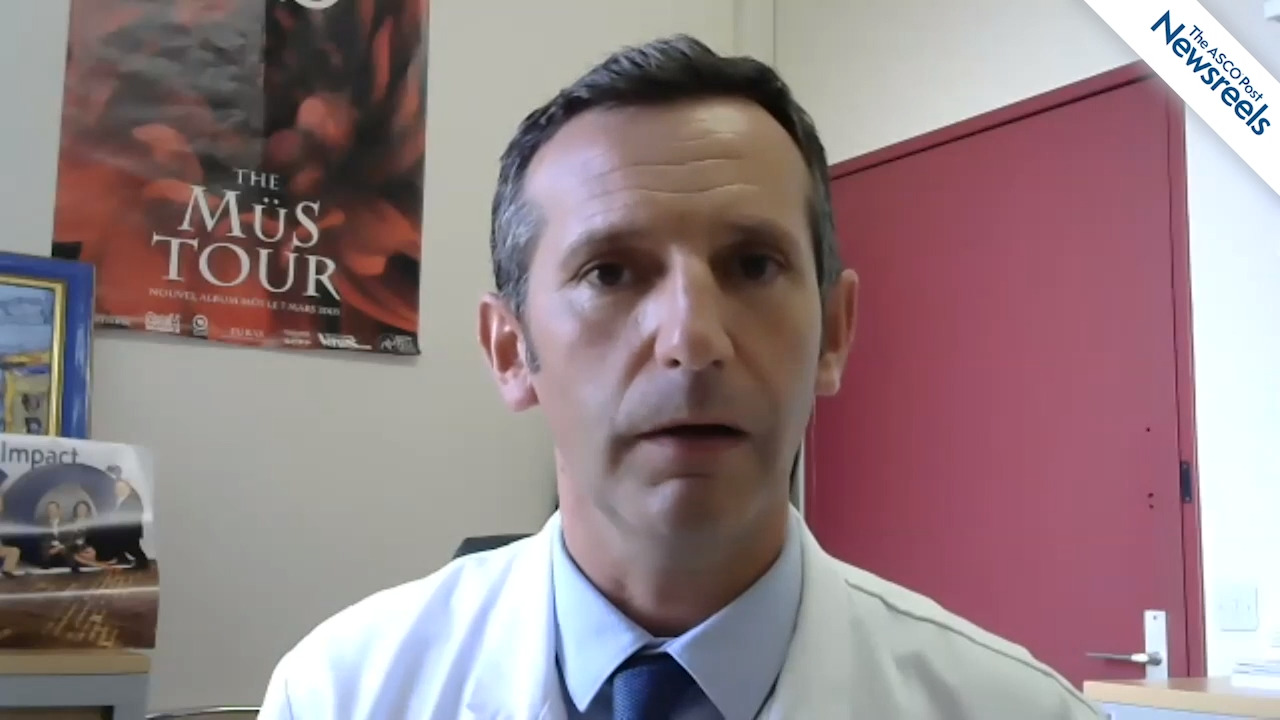Masahiro Tsuboi, MD, on NSCLC: Adjuvant Osimertinib in EGFR-Mutated Disease
ESMO Virtual Congress 2020
Masahiro Tsuboi, MD, of Japan’s National Cancer Center Hospital East, discusses the phase III results from the ADAURA study, which showed a reduced risk of local and distant recurrence in patients with resected EGFR-mutated non–small cell lung cancer, reinforcing adjuvant osimertinib as an effective treatment (Abstract LBA1).
The ASCO Post Staff
Erika P. Hamilton, MD, of Sarah Cannon Research Institute, discusses results of the nextMONARCH study, which indicated that combining abemaciclib with tamoxifen improved overall survival. Dr. Hamilton also details adverse events in different arms of the study (Abstract 273O).
The ASCO Post Staff
Jeffrey S. Weber, MD, PhD, of the Perlmutter Cancer Center, NYU Langone, discusses the 4-year recurrence-free and overall survival results from the CheckMate 238 study, which showed adjuvant nivolumab continues to be an effective treatment, vs the comparator ipilimumab, for patients with resected stage III/IV melanoma (Abstract 1076O).
The ASCO Post Staff
Andreas Schneeweiss, MD, of the Heidelberg University Hospital and German Cancer Research Center, discusses phase III survival data from the GeparOcto trial, which compared the neoadjuvant chemotherapy intense dose-dense EPC (epirubicin, paclitaxel, and cyclophosphamide) with weekly paclitaxel and liposomal doxorubicin (with or without carboplatin in triple-negative breast cancer) for patients with high-risk early breast cancer (Abstract 160O).
The ASCO Post Staff
Benjamin Besse, MD, PhD, of the Gustave Roussy Cancer Centre, discusses results of the phase II PRINCEPS trial, which assessed, for the first time, the effect of just one injection of the immunotherapy atezolizumab before surgery in patients with resectable non–small cell lung cancer (Abstract 1215O).
The ASCO Post Staff
Erica L. Mayer, MD, MPH, of Dana-Farber Cancer Institute, discusses an initial analysis of phase III findings from the PALLAS trial, which suggested the benefits observed in the metastatic setting with palbociclib plus endocrine therapy did not translate into the earlier adjuvant setting for patients with hormone receptor–positive, HER2-negative breast cancer. Long-term follow-up is ongoing (Abstract LBA12).





